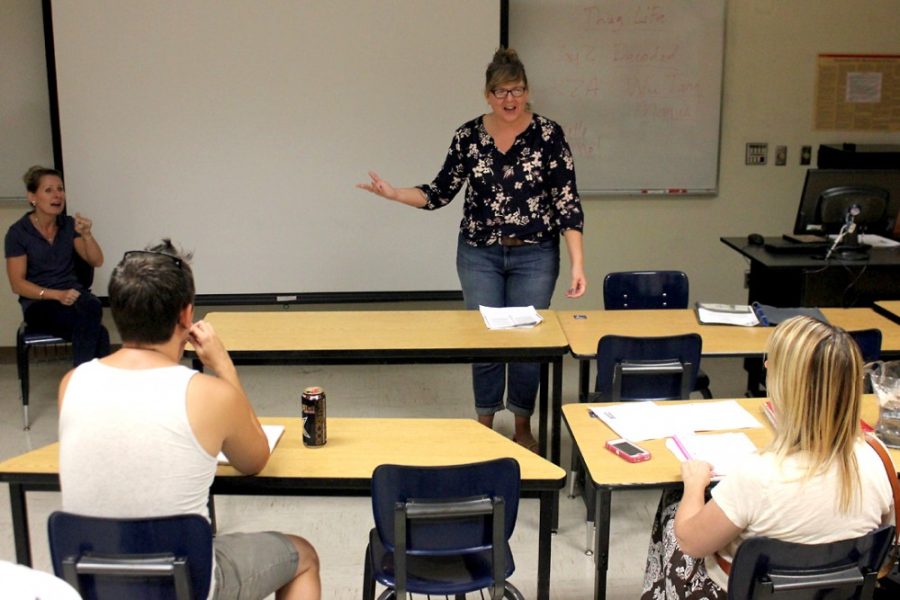The American Indian Studies program is now becoming a department within the College of Social and Behavioral Sciences.
The UA has offered graduate-level degrees in AIS, and, now that it has become a department, plans to offer an undergraduate bachelor’s degree in the field, said Ofelia Zepeda, a linguistics regents’ professor who is the acting head of the AIS department. Zepeda’s area of research within linguistics is American Indian languages.
AIS has been available as a minor for undergraduate students, but as a department, it now moves from the Office of the Senior Vice President for Research to SBS. As a part of SBS, AIS will act more as an academic unit, said John Paul Jones III, dean of SBS.
“[The Office of the Senior VP for Research] was not the best place for the unit that operates like an academic unit with a large number of bachelor’s courses,” Jones said.
He said the change to SBS is an administrative change and there will be no new costs associated with the move. AIS will also remain in its current offices in the Harvill building.
AIS will now have greater opportunity to interact with the other departments within SBS in areas of research such as the School of Anthropology, the department of history and, most recently, the department of English, Jones said.
“If you look at the individual faculty that is in the [AIS] unit, SBS is the right place for them,” he said.
Zepeda also said she believes that within SBS, more opportunities will open up for faculty and students in AIS.
“I anticipate that there’ll be more collaboration across different departments with AIS with research activities, service activities and events,” she said.
AIS has a history of working with tribal communities in Arizona and throughout the Southwest and the addition of the bachelor’s degree in the field will help to expand the UA’s work with them, said Karen Francis-Begay, assistant vice president for tribal relations. Francis-Begay keeps tribal communities informed of what’s happening at the UA.
“[The addition of the AIS department] will bridge our connection with the tribal community far sooner than waiting for students to get to graduate level studies,” Francis-Begay said.
She said the AIS program has customized its strengths based on issues of importance to tribal communities in the region, whether they relate to policy, language or natural resources. Francis-Begay sent a letter to tribal communities informing them of the move and reaffirmed the UA’s commitment to Arizona’s tribal communities as a part of its land grant mission.
The graduate-level AIS program includes 32 faculty and 48 students, and there is an anticipation of hiring more faculty as it begins to serve more undergraduate students, Zepeda said. The change of AIS to a department became effective at the beginning of this month.
“AIS has had a very long history and a very good history and it has had some very significant faculty that taught here for some time,” Zepeda said, “and AIS has graduated students that are doing important work and doing research across the country.”









